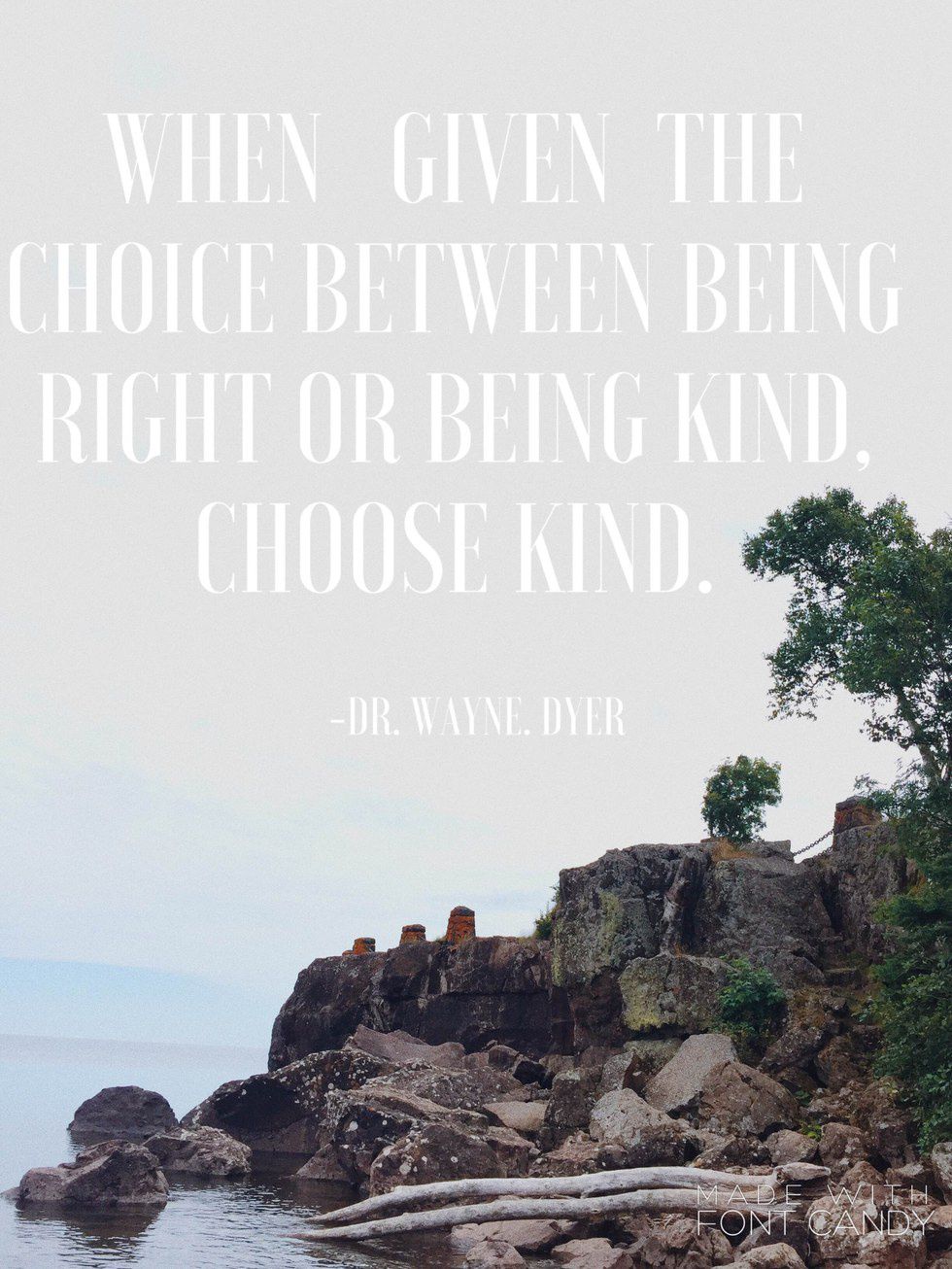"Someone must risk returning injury with kindness, or hostility will never turn to goodwill." -Lao Tzu
Over the course of one's life, there are many nuances in which we justify our reasoning for why we do what we do. Whether we admit it or not, we do not want to be in the wrong. Looking at the political debates over recent months, we can see the pointed fingers and the insensitive comments that have discredited each candidate. We can clearly observe the vehement denial of accusations, and the obvious attempts to turn the tables. Many people will look at this and are in shock at how far America has deteriorated, in terms of morality and value. However, popular culture and politics essentially embody the society that we live in today.
So what does this mean about us, as a collective group? I ask myself this quite often, and the only sure answer I can think of is this: throughout my own life, I have felt pressed so hard to be right. I want to stand up for my beliefs, to speak out against those who do not agree with me, and have little remorse for who gets hurt. However, at the end of the day, how much does me being right really matter?
Our innate need to be right is caused by our pride. When someone says something that we deem as wrong, our ego feels justified into proving them right: it's a snap reaction. This leads to a narrow view of seeing only your own truth. Because of this way of thinking, compromise usually is not met. With each side defiant in their own personal truth, this inability to see each other's perspectives can ruin relationship dynamics.
Many will argue that by dismissing our own views, we are compromising our truths, however, that is not necessarily the case. By letting go of our pride and detaching ourselves from our tendency to be right, we unsurface what really matters: how we handle ourselves in these cases. Sometimes the answer is not between right or wrong. The solution could be simply that we don't have to prove them wrong: we should actually be willing to be wrong ourselves.
Choosing to be kind is a conscious decision. It is reflecting on the weight of the words that you choose to say, and deciding whether it will cause more harm than good if said. Sometimes, being wrong is a far better consequence to face rather than causing rifts in relationships. When sharing opinions or remaining firm on one's stance, we must always take into consideration the implacability of how what we say affects us and everyone around us. Imagine what it would be like if everyone chose to be a little more kind. By letting go and realizing that being right is not what matters most, we may be able to change the world.




 Photo by
Photo by  Photo by
Photo by  a group of people sitting around a table with laptopsPhoto by
a group of people sitting around a table with laptopsPhoto by  people on beach during daytimePhoto by
people on beach during daytimePhoto by  Photo by
Photo by 












